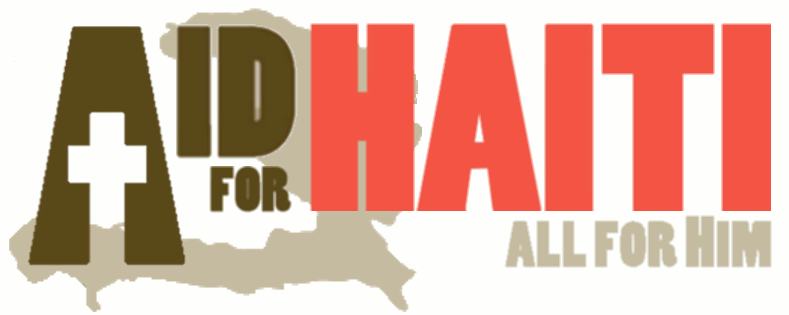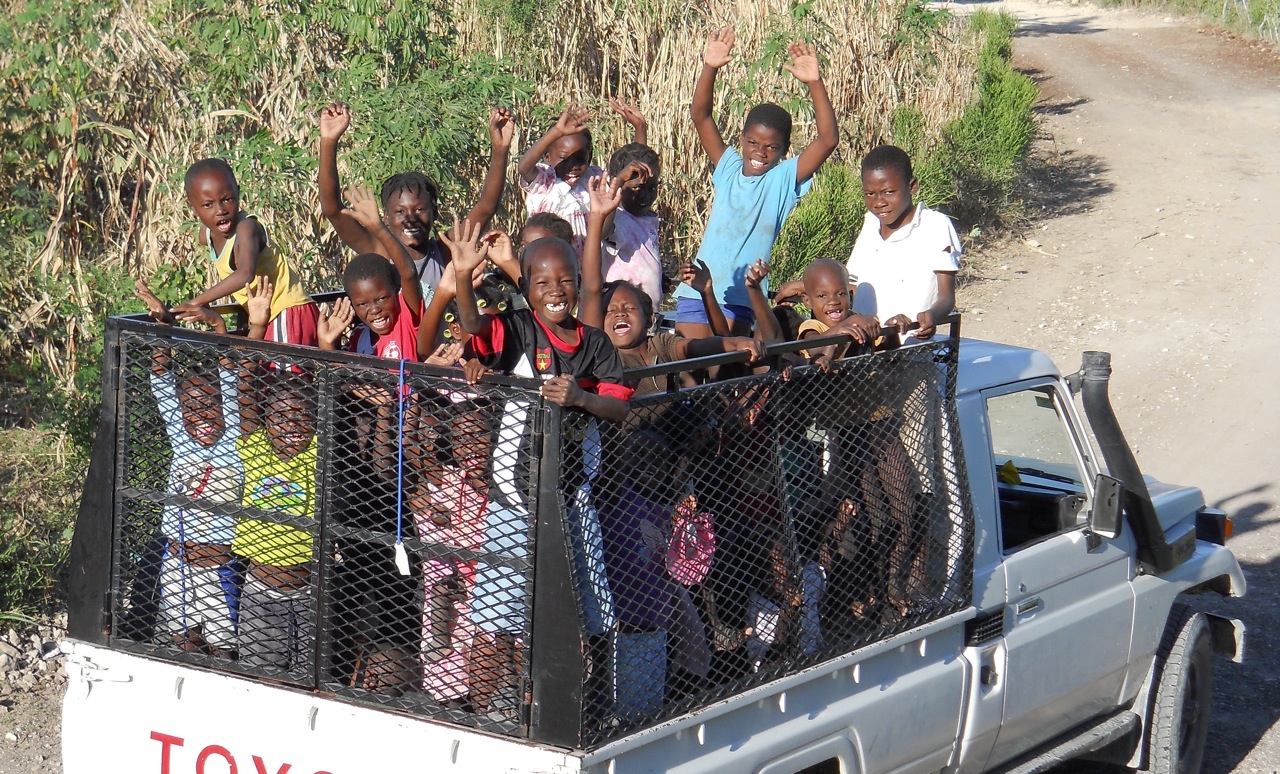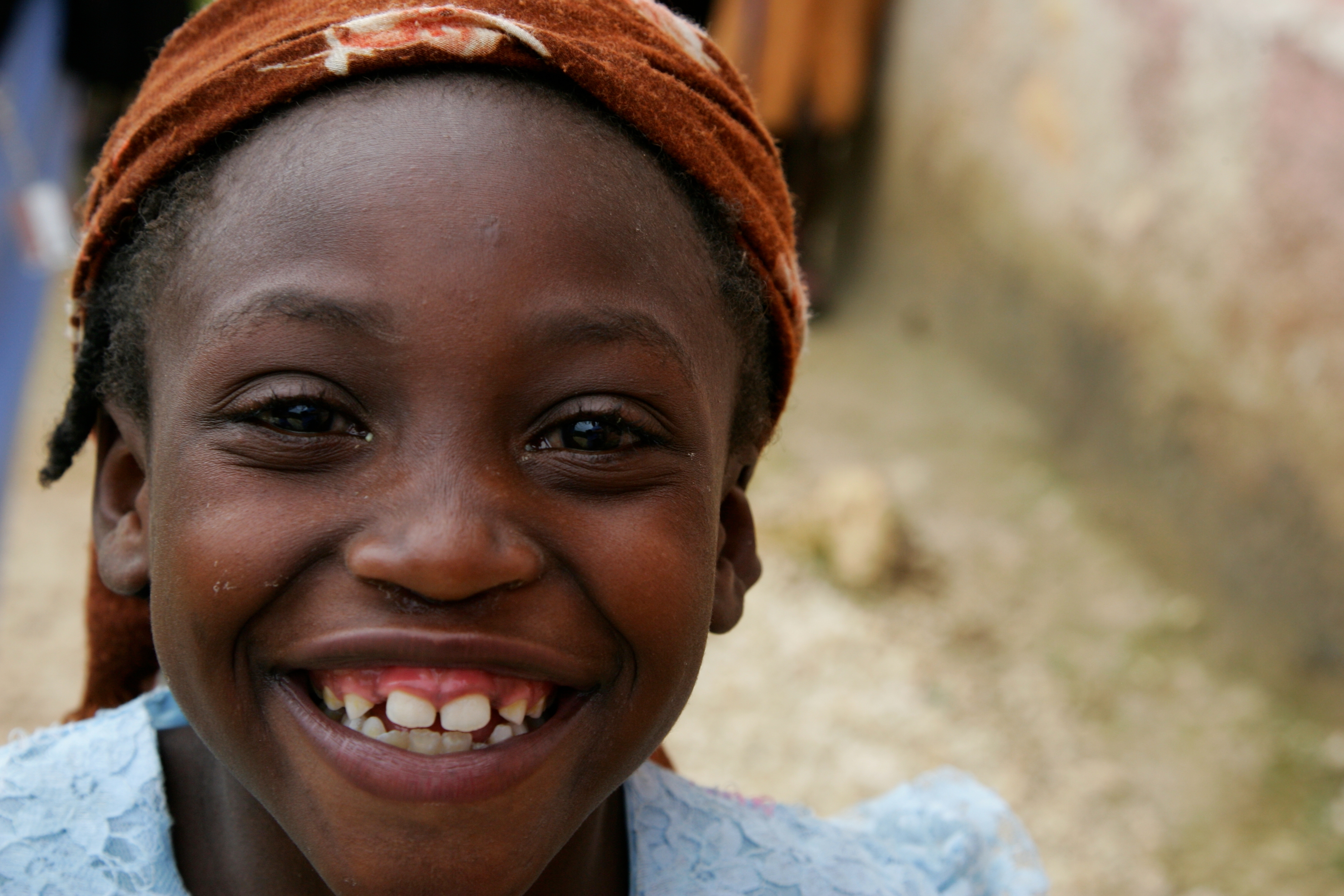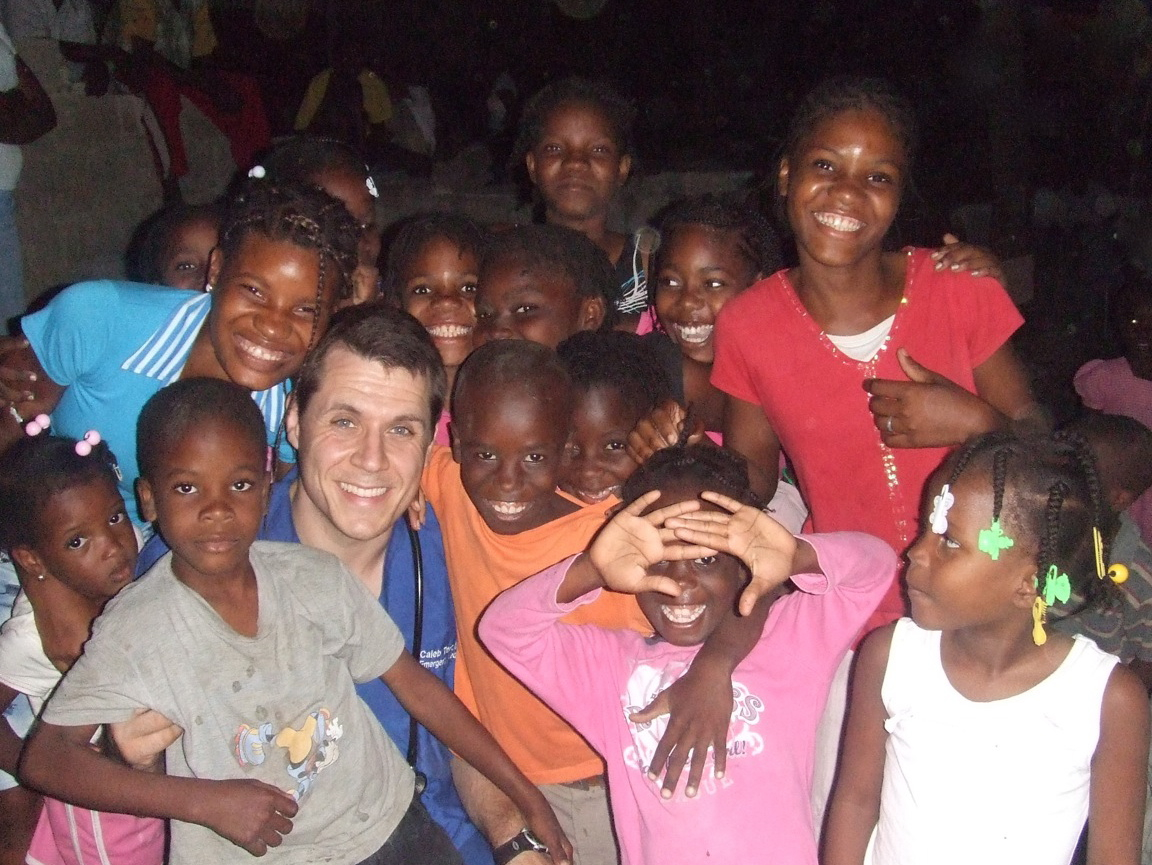Explore the experience of a cholera treatment team in Haiti with this new video. Take a look at the video and ask yourself how God would use you in Haiti.
Pastor Training in Remote Haitian Churches
Séminaire pour les Leaders Évangéliques 2011
Jean Rebel, Northern Haiti
The Lord blessed us with a wonderful week of training for pastors, elders, and evangelical teachers. We were invited about a year ago to conduct a week of Bible study in this area by a brother from Minnesota who had family living in this region. AFH made two investigative trips there last fall and this spring to pray and discern if it was God’s will that we go. Over 200 men showed a strong interest and a place was found to hold the week long Bible Seminar. Because the place was small and primitive, I asked the local leaders to choose only select men from their churches to come and to keep the number to about 75.
We gathered together tents, tarps, rice, beans, plates, cups, kettles, cooks, solar powered PA and projector, emergency medical kits, water filter equipment, and all the other provisions for 8 days in the remote mountain valley. We travelled 4 ½ hours northwest of Gonaives by Land Cruiser on Saturday in torrential rains. Sunday after morning worship and preaching we began with registration and orientation. About 85 men were in attendance each day from 8:00 to 4:30.
Each day we had four 1½ hour long sessions. The first class was on “How to Study the Bible Accurately and Effectively”. The focus was study without any study aids; using only prayer, the help of the Holy Spirit, the Bible, note paper and pen, and an eager mind. We taught them to ask good questions, how to use the immediate and larger context of Scripture in understanding any text and how to find and follow the major themes of the Bible. As we introduced each study method, we would take a passage and learn by doing. God seemed to really bless this class. As the men would come to understand each lesson, they would occasionally erupt with joy and shouting at the discovery they just made. Hopefully they will never forget the treasures that can be uncovered in God’s Word with a clean heart within, the Holy Spirit upon them, the Bible open before them and pen and paper in their hand.
The second class was on “Finding Christ in the Old Testament.” This class focused on the great themes of salvation as introduced through Old Testament types. The men were thrilled to have the Old Testament to come alive. Many Haitian believers are not clear at all on what the Bible teaches concerning salvation by faith in Christ alone.
In the afternoon, we taught on “Particular Needs in the Haitian Church.” We tried to very clearly speak to the men about their life testimony and purity in the church. They have a huge problem of mixing Christianity and voodoo. Many, many times we find this true and yet not a great concern to them. The pastors thought that these teachings were ‘STRONG MEDICINE.’ The final class of the day was the “questions and answers” period followed with small group prayer times. Each evening there were public evangelistic meetings. We had good attendance and attention each evening.
Please continue to pray that God would bless the Word that was preached and that the men would take seriously their responsibility to preach and live the Word before their people. We have another Pastor/Teacher Seminar scheduled for next month for about 90 men in Fond Doux in southern Haiti. We also are planning a Pastor/Teacher Seminar sometime in October or November in Potino. This area is not accessible by truck. We have helped provide medical care in this area for years and are excited about Bible training here as well.
Aid for Haiti
After the Earthquake
Disaster. Dreadful. Disturbing. Deadly. These were all terms used in describing the 7.0 earthquake that struck Haiti just over a year ago on January 12th, 2010. The epicenter located 10 miles southwest of the capital, Port-au-Prince, was in such proximity to the capital that it caused widespread devastation and brought all commerce to a standstill. When the dust settled and the dead were counted, 1 in 40 Haitians died and 2 out of every 9 Haitians were displaced from their homes. We all remember the images – heaps of concrete rubble with rebar sheared like grass, bodies being pulled out of the rubble and dumped in to pits located in Titanyen just north of the capital, a fragmented national capital building, churches without roofs, children without parents, Haiti without hope.
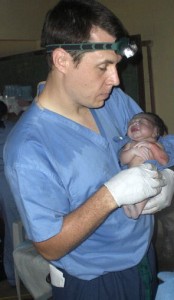 A year ago this week, I left for Haiti as a part of the medical disaster response from Aid For Haiti (see the website for photos and more details). My two weeks there left me profoundly changed. While more than 100,000 people eventually came to the aid of the people, the need when I was on the ground in Petit Goave was immense. We ran and directed a medical clinic there along with hundreds of individuals from other organizations who came to volunteer their time, their skills and their compassion for the people. When I was on the ground, medical emergencies were still present, but it was evident the long-term effects on the medical, social and economic infrastructure of this island country, already so dependent of foreign aid, would be severe.
A year ago this week, I left for Haiti as a part of the medical disaster response from Aid For Haiti (see the website for photos and more details). My two weeks there left me profoundly changed. While more than 100,000 people eventually came to the aid of the people, the need when I was on the ground in Petit Goave was immense. We ran and directed a medical clinic there along with hundreds of individuals from other organizations who came to volunteer their time, their skills and their compassion for the people. When I was on the ground, medical emergencies were still present, but it was evident the long-term effects on the medical, social and economic infrastructure of this island country, already so dependent of foreign aid, would be severe.
Much has been made in the media of the delay in financial aid to the Haitian government. Recent figures show that fully 1 of every 5 houses affected require major repairs or demolition, while 1 out of every 4 need repairs to be made safe. Clearly the need for safe housing still exists. However, Haiti has faced two more crises since the earthquake. The cholera outbreak was initially publicized as “contained”, “sporadic”, and “rare”; however, when I was in Haiti during November treating patients in Potino with cholera (see the new videos on the website), it was evident that cholera is now epidemic, deadly (mortality of 7-9%) and will continue affect Haiti for years to come. Additionally, the political situation in Haiti continues to deteriorate as evidenced by the elections which were declared invalid by the international observer community and the surprise return of Jean-Claude “Baby Doc” Duvalier under whose torture, thousands of Haitians suffered and died.
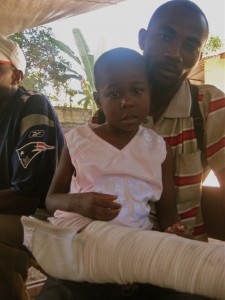
In light of the challenges Haiti faces, it might seem to some observers that my time and work in Haiti over the past year was at best, “only one drop of good in the sea of need”; at worst, it might seem to be wasted effort. However, as I reflect over what has taken place over the last year, and how God has taught us and used us for His glory in specific situation, I’m convinced my time was not in vain, not this year or in the years past. Despite the political, social, and medical instability of Haiti a year after its worst disaster, Aid For Haiti will continue to do what it originally began.
Aid For Haiti (AFH) began out of a desire to reach Haitians in rural, remote villages with the gospel and medical care. That desire led to the realization that discipleship of Haitian church leaders was key in meeting these goals and the Church Leadership Training Seminars program was born. At our last board meeting, there was renewed vigor and purpose as we discussed moving forward with our plans to purchase land and to build a base for our medical ministry and personnel to use as a base for teams that continue to come from Canada and USA.
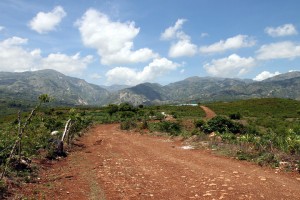 As we move forward with plans to build, know that we have not forsaken our original goal of sharing the love of Christ with the people of Haiti through compassionate health care, spiritual ministry and training for service. In the months to come, you’ll see updates regarding these goals as well as our iodine treatment program, clean water efforts and new gospel methods.
As we move forward with plans to build, know that we have not forsaken our original goal of sharing the love of Christ with the people of Haiti through compassionate health care, spiritual ministry and training for service. In the months to come, you’ll see updates regarding these goals as well as our iodine treatment program, clean water efforts and new gospel methods.
Until then, please continue to pray. Pray that God would be glorified through us as we seek to serve Him. Pray for wisdom from the Lord for AFH regarding our future and our work in Haiti. Pray for our protection and for the safety of our friends in Haiti. Pray for us to be light and salt and that all of Haiti would see the hope found only in Jesus Christ.
-Caleb Trent
The Heart of AFH
Many times we can feel overwhelmed with all the needs we see around us in the world. We look down at our meager resources and feel like such an inadequate gesture could not be of any significant value. There is too much to do, too much ignorance, too much poverty, too much suffering. However, the truth is that our efforts, no matter how seemingly small, do make a difference.
In the slums and streets of Haiti, thousands of homeless children make up a labor force of orphans referred to by the rest of the community as “enfants sans revs”. In Creole, this means literally “children without dreams” and these truly are children without dreams and without a future. The reasons why these children have found themselves in this situation are endless, but they all share a common destiny, hopelessness. Many work as child slaves to pay for the one meal a day that will keep them alive and face innumerable perils and hardships. Very few are able to attend school and many die alone after months of near starvation and unattended illness. There is now an estimated 300,000 of these children living in Haiti today, and three fourths of this number are believed to be girls. These children are living proof that slavery is not just a thing of the past, but is instead the stark, nightmarish reality of their everyday lives.

Meet Shadrack. Shadrack is a boy of about thirteen years old, even though his exact age cannot be determined. A few years ago, his parents, which were storekeepers in Haiti’s capital city of Port-au-Prince, were killed in a botched robbery. Young Shadrack was turned out onto the street by the landlord of his parent’s house, and thus his struggle for survival began. He managed for a time in the huge crime-ridden metropolis until he met a young man from a rural village, looking to find someone to help on his parents farm while he traveled to the Dominican Republic. Shadrack agreed to come and work. For the next two years, Shadrack worked hard and received little in return besides a place to sleep, scanty meals, and regular tongue lashings.
Shadrack was living in this rural area of Patmos when our AFH team met him. He cheerfully hiked along beside the team as they brought out supplies for the clinic they were planning to have there. Those on the team were struck by his shockingly thin frame and a face that bore the absence of childhood, a face that seemed to have lived far beyond his years. After he shared his story, some of the team members began to discuss among themselves the possibility of bringing Shadrack back to Port-au-Prince. Guyteau, a young Haitian man acting as a translator, shared how he once had been a boy on the streets of Port, but had been rescued and given a second chance at life thanks to a missionary and his family who took a dedicated interest in his life. He now has a good job, plans to marry soon, and has a bright future. Shadrack’s plight touched his heart because it was one that he could relate to so well. If possible, he wanted to give Shadrack the same opportunities that he had been given.
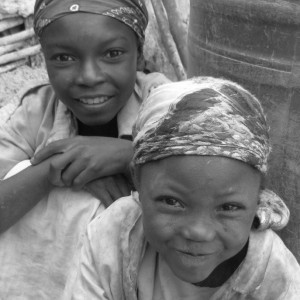 After discussing it among themselves, the team made arrangements with the older couple that he worked for to release him. After only a few days with a group of people that showed him genuine love and concern, the transformation was amazing. Virginia Rudolph recalls that “The little guy was dumbstruck at the change of circumstances… and it was so neat to see him open up after being so shy and reserved”. Shadrack is now living with a team member in Port-Au-Prince and plans to attend school.
After discussing it among themselves, the team made arrangements with the older couple that he worked for to release him. After only a few days with a group of people that showed him genuine love and concern, the transformation was amazing. Virginia Rudolph recalls that “The little guy was dumbstruck at the change of circumstances… and it was so neat to see him open up after being so shy and reserved”. Shadrack is now living with a team member in Port-Au-Prince and plans to attend school.
Jesus tells us in Matthew chapter 24 that if you show mercy to any child, you have showed it to Him. While the task of bringing hope to the millions of children like Shadrack seems daunting, we cannot cease to make the changes that we can just because finishing the task seems impossible. We will never finish if we do not start. The vision of AFH is to touch lives like Shadrack’s with medical care and also with the gospel. Shadrack is just one life touched, and it’s true that there are uncountable others to reach, but these kind of differences are the kind that are made bit by bit, and child by child. Just as in the story of the loaves and fishes, gifts offered with a sincere heart can be multiplied beyond our wildest dreams if we place them in the supernatural hands of the Savior.
